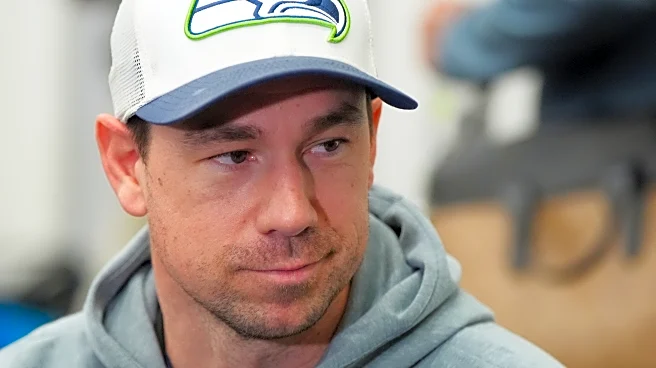What's Happening?
Veterinarians are raising awareness about the subtle signs of anxiety in dogs, which often go unnoticed by pet owners. Dr. Colleen Guilfoyle, a veterinarian specializing in shelter medicine, explains that dogs have evolved to hide their vulnerabilities,
making it difficult for owners to recognize anxiety. Common triggers include noise sensitivities, social fears, and separation-related distress. Subtle behavioral signs such as frequent yawning, lip-licking, and avoiding eye contact are often overlooked. Physical indicators like panting, drooling, and changes in posture can also signal anxiety. If left untreated, anxiety can lead to more severe issues like aggression or self-injury. A comprehensive approach involving environmental management, behavior modification, and medication is recommended to help dogs cope.
Why It's Important?
Understanding and addressing canine anxiety is crucial for the welfare of pets. Anxiety can significantly impact a dog's quality of life, leading to behavioral problems and potential relinquishment to shelters. By recognizing early signs of anxiety, pet owners can take proactive steps to prevent long-term issues, ensuring their pets remain happy and healthy. This awareness also highlights the importance of consulting veterinarians for guidance and support in managing anxiety-related behaviors. The broader implication is a more informed pet-owning public, which can lead to better care and reduced rates of abandonment.
















